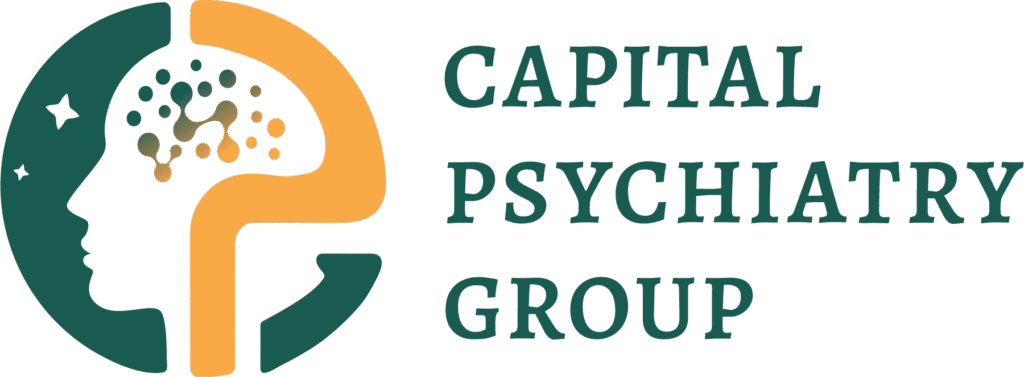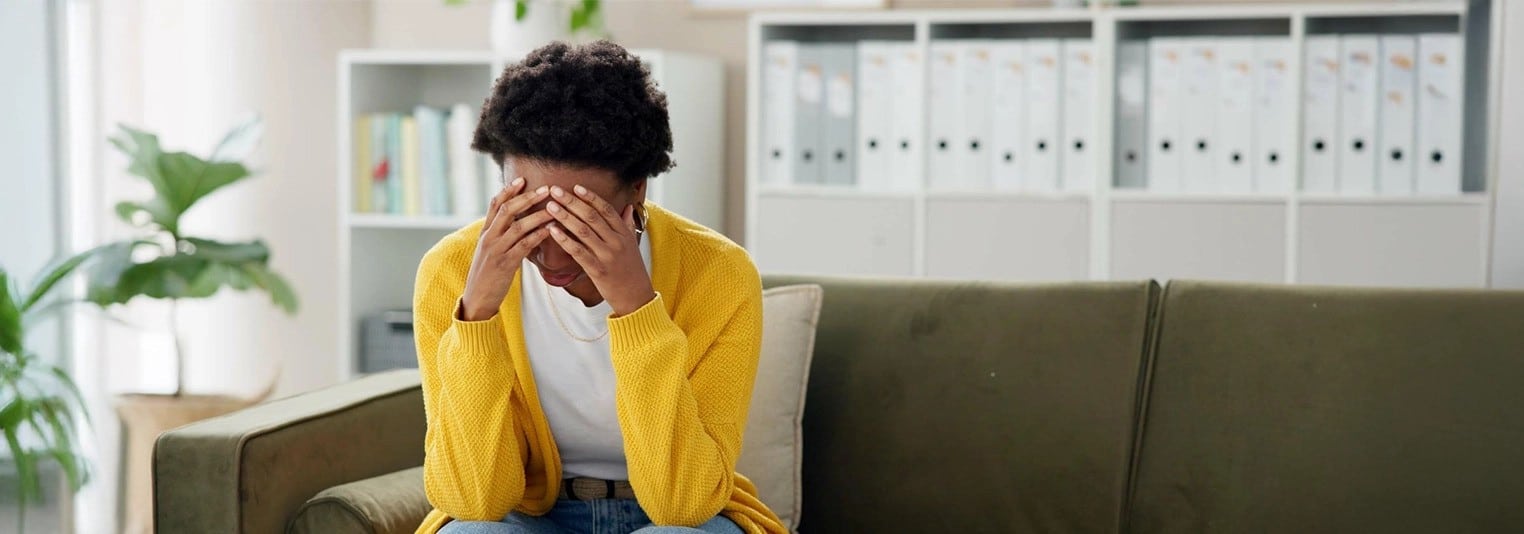
Anxiety has become one of the most common mental health challenges of our time (affecting 40 million adults annually). In New Jersey, a state known for its fast-paced lifestyle, high cost of living, and long daily commutes, many residents experience stress that can tip into clinical anxiety. Unfortunately, while anxiety disorders are highly treatable, too many people either delay or never seek care.
Do you know
- Nearly 1 in 5 teens (ages 12–17) reported anxiety symptoms between 2021–2023.
- Anxiety disorders affect 38% of female adolescents (ages 13–18), compared to 26.1% of males.
- Adult women are significantly more likely to experience conditions like generalized anxiety disorder (GAD) compared to men.
- Despite effective options, over 57% of people with anxiety never receive help.
Recent findings from the Behavioral Health Barometer show that about 27.7% of adults in the state report symptoms of anxiety or depression, a figure slightly below the national average of 32.3%. With a somewhat better threshold than the numbers of the overall U.S.
Young adults and high school students remain especially vulnerable: during the COVID-19 pandemic, more than one in three young adults showed clinical signs of anxiety or depression. The National Alliance on Mental Illness shared key insights about the mental health condition of the New Jersey population.
Key Mental Health Challenges in New Jersey
- Teens left untreated: 61.4% of New Jersey youth (ages 12–17) with depression did not receive care in the past year.
- School impact: High school students with depression are more than twice as likely to drop out as their peers.
- Homelessness & illness: Nearly 1 in 3 homeless New Jerseyans live with a serious mental illness.
- Suicide risk: In 2022, 778 lives were lost to suicide in New Jersey, while 239,000 adults reported suicidal thoughts.
- Criminal justice link: About 1 in 4 people with serious mental illness have been arrested, contributing to over 2 million jail bookings annually.
- Incarceration rates: Roughly 2 in 5 adults in jail or prison have a history of mental illness.
- Juvenile justice: 7 in 10 youth in the juvenile system live with a mental health condition.
Board-Certified Anxiety Specialists, Just a Click Away
If anxiety has been keeping you from living the life you want, know that you don’t have to face it alone. The board-certified providers of CPG offer compassionate, evidence-based treatment (Therapy, Counseling, Medication) for anxiety throughout New Jersey.
What Is Anxiety & Why It Matters in New Jersey
Anxiety is more than everyday stress or worry. While it’s normal to feel nervous before an exam, job interview, or big life event, anxiety disorders go further; they cause persistent, excessive fear that can interfere with work, school, relationships, and daily activities.
Common Symptoms of Anxiety Disorders
While symptoms can differ depending on the specific type of anxiety, some of the most frequent include:
- Physical symptoms: Rapid heartbeat, sweating, trembling, dizziness, shortness of breath, headaches, gastrointestinal distress.
- Cognitive symptoms: Racing thoughts, constant “what if” scenarios, difficulty concentrating, and memory lapses.
- Emotional symptoms: Irritability, restlessness, a sense of impending danger.
- Behavioral symptoms: Avoidance of situations, procrastination, or reliance on substances to cope.
Why Anxiety is a Growing Concern
The Garden State offers opportunity and energy, but it also comes with unique stressors/challenges that can potentially increase anxiety:
- High housing and living costs
New Jersey consistently ranks among the most expensive states to live in, creating ongoing financial pressure that can fuel stress and worry. - Fast-paced professional environments
Careers in law, medicine, finance, and other high-demand industries demand long hours, often at the expense of mental well-being. - Persistent stigma around mental health
Despite growing awareness, cultural stigma in many NJ communities still prevents people from seeking the care they need. - High rates of anxiety and depression symptoms
According to the 2023 Behavioral Health Barometer, 27.7% of New Jersey adults report symptoms of anxiety or depression, compared to 32.3% nationally. - Strength in provider availability
On a positive note, federal data shows that New Jersey meets 72.7% of its need for mental health professionals, far above the 27.7% national average. This means shorter wait times and faster access to care, crucial for treating anxiety before it escalates.
Your Relief Starts Here. Let’s Begin Today
Every day you wait, anxiety weighs heavily. With in-clinic & telehealth appointments, compassionate providers, and care tailored to your needs, recovery is closer than you think. Take the step now, your future self will thank you.
Major Types of Anxiety Disorders
Anxiety disorders (GAD, SAD, Panic Disorder, Health Anxiety, Postpartum Anxiety, Separation Anxiety, Specific Phobias) are not one-size-fits-all. Each type has its own pattern of symptoms, triggers, and treatment (therapy, counseling, medication, or both) needs. Understanding these differences can help people recognize when it’s time to seek professional support.
1. Generalized Anxiety Disorder (GAD)
GAD is marked by chronic, excessive worry about everyday issues like health, work, family, finances, even when there is little reason to worry.
- Key symptoms: Constant tension, restlessness, irritability, fatigue, muscle aches, sleep disturbance.
- Prevalence: 3.1% of U.S. adults experience GAD annually. It often develops gradually and affects women at nearly twice the rate of men.
2. Panic Disorder
Panic disorder involves sudden, intense surges of fear, often described as feeling like a heart attack. These are known as panic attacks and may occur unexpectedly.
- Key symptoms: chest pain, rapid heartbeat, dizziness, shortness of breath, sense of impending doom.
- Prevalence: About 4.7% of U.S. adults experience panic disorder at some point in their lives.
3. Social Anxiety Disorder (SAD)
SAD is more than shyness; it’s an overwhelming fear of being judged, embarrassed, or rejected in social or performance situations.
- Key symptoms: blushing, sweating, trembling when speaking or meeting new people; avoidance of social gatherings.
Take the First Step Toward Calm, Without Leaving Home
Anxiety doesn’t have to control your days. With Capital Psychiatry Group, you can access experienced providers through secure telepsychiatry & accessible on-site visits. Expert care where you feel comfortable.
4. Specific Phobias
These are intense fears of particular objects or situations, such as heights, flying, spiders, or needles. Exposure often triggers immediate anxiety or panic.
- Key symptoms: avoidance of the feared object/situation, disproportionate fear response.
5. Health Anxiety (Hypochondriasis)
Although not always classified as a stand-alone disorder, health anxiety involves excessive worry about having a serious illness despite reassurance and normal medical exams.
- Key symptoms: repeated doctor visits, constant checking for symptoms, and health-related internet searches.
- Prevalence: Studies estimate 4–6% of US patients in primary care settings show health anxiety features.
6. Obsessive-Compulsive Disorder (OCD) & Post-Traumatic Stress Disorder (PTSD)
These are now categorized separately in the DSM-5, but both share significant overlap with anxiety:
7. Postpartum Anxiety
Postpartum anxiety develops after childbirth and involves persistent, excessive worry about the baby’s safety, health, or parenting abilities. It goes beyond normal new-parent concerns and can disrupt bonding and daily life.
Key symptoms: constant worry, restlessness, sleep disturbance, racing thoughts, and physical tension.
Prevalence: 11–21% of new mothers experience postpartum anxiety, though it is often underdiagnosed due to stigma and hesitation to seek help
8. Separation Anxiety
Separation anxiety involves intense fear or distress when away from loved ones or primary caregivers. While common in children, it can also affect adults, leading to avoidance of work, school, or travel.
Key symptoms: excessive worry about harm to loved ones, reluctance to be alone, physical complaints (headaches, stomachaches) when separation occurs.
Prevalence: About 4% of children and 1–2% of adults in the U.S. experience separation anxiety disorder, with higher rates during times of stress or major life changes.
Do you know
- In the National Library of Medicine, depressive episodes are among the most underdiagnosed conditions (50%), as many patients initially sought medical care for physical symptoms rather than psychiatric help.
- Anxiety disorders frequently co-occur with depression: 50 to 75% of individuals with depression also meet criteria for an anxiety disorder
When to Seek Professional Help
Everyone experiences anxiety from time to time, but when it becomes overwhelming, persistent, and interferes with daily life, it may be time to seek professional support.
Red-Flag Signs You Shouldn’t Ignore
- Anxiety is present most days for six months or longer.
- Panic attacks occur repeatedly and unexpectedly.
- Avoiding social, professional, or public settings that limit daily life.
- Trouble sleeping, concentrating, or functioning at work/school.
- Physical symptoms (chest pain, stomach issues, headaches, fatigue) are frequent but unexplained by medical tests.
- Anxiety is leading to substance use or worsening depression.
The Reality of Anxiety Treatment Gaps in New Jersey
According to national studies, while nearly 1 in 5 adults lives with an anxiety disorder, only about 43.2% receive treatment. That means the majority are left struggling without help, even though effective therapies exist.
Impact of Untreated Anxiety:
- Individuals with untreated anxiety are two to three times more likely to develop depression.
- Chronic anxiety has been linked to a higher risk of cardiovascular disease and weakened immune function.
- Over half of the people with untreated anxiety reported significant impairment in work and relationships.
Why Early Intervention Matters
For New Jersey residents facing long commutes, high-pressure jobs, and family demands, early care is vital, treating anxiety early prevents it from escalating into more serious conditions.
Seeking professional help is not a sign of weakness; it’s an act of strength and self-care. With the right support, recovery is not only possible but highly likely.
Treatment Options for Anxiety
The good news is that anxiety disorders are treatable, and with the right support of licensed psychiatrists and clinical psychologists, most people see significant improvement in symptoms. Treatment often combines therapy, medication, and lifestyle changes tailored to each individual.
1. Cognitive Behavioral Therapy (CBT)
CBT is considered the gold standard for treating anxiety. It helps patients identify unhelpful thought patterns and replace them with healthier coping strategies.
- Effectiveness: Studies show that 60–80% of people with anxiety respond well to CBT, often within 12–20 sessions.
- Local relevance: Many NJ clinics now offer in-person and virtual CBT, making it accessible for busy professionals and students.
2. Exposure Therapy
A specialized form of CBT, exposure therapy helps individuals gradually face their fears in a safe, controlled way.
Effectiveness: Particularly effective for phobias, social anxiety, and OCD.
3. Medication
Medications can help manage symptoms, often used in combination with therapy:
- SSRIs and SNRIs (first-line antidepressants) are commonly prescribed.
- Benzodiazepines may be used for short-term severe anxiety or panic attacks.
Note: This is not medical advice and is not equivalent to the doctor’s expert observations
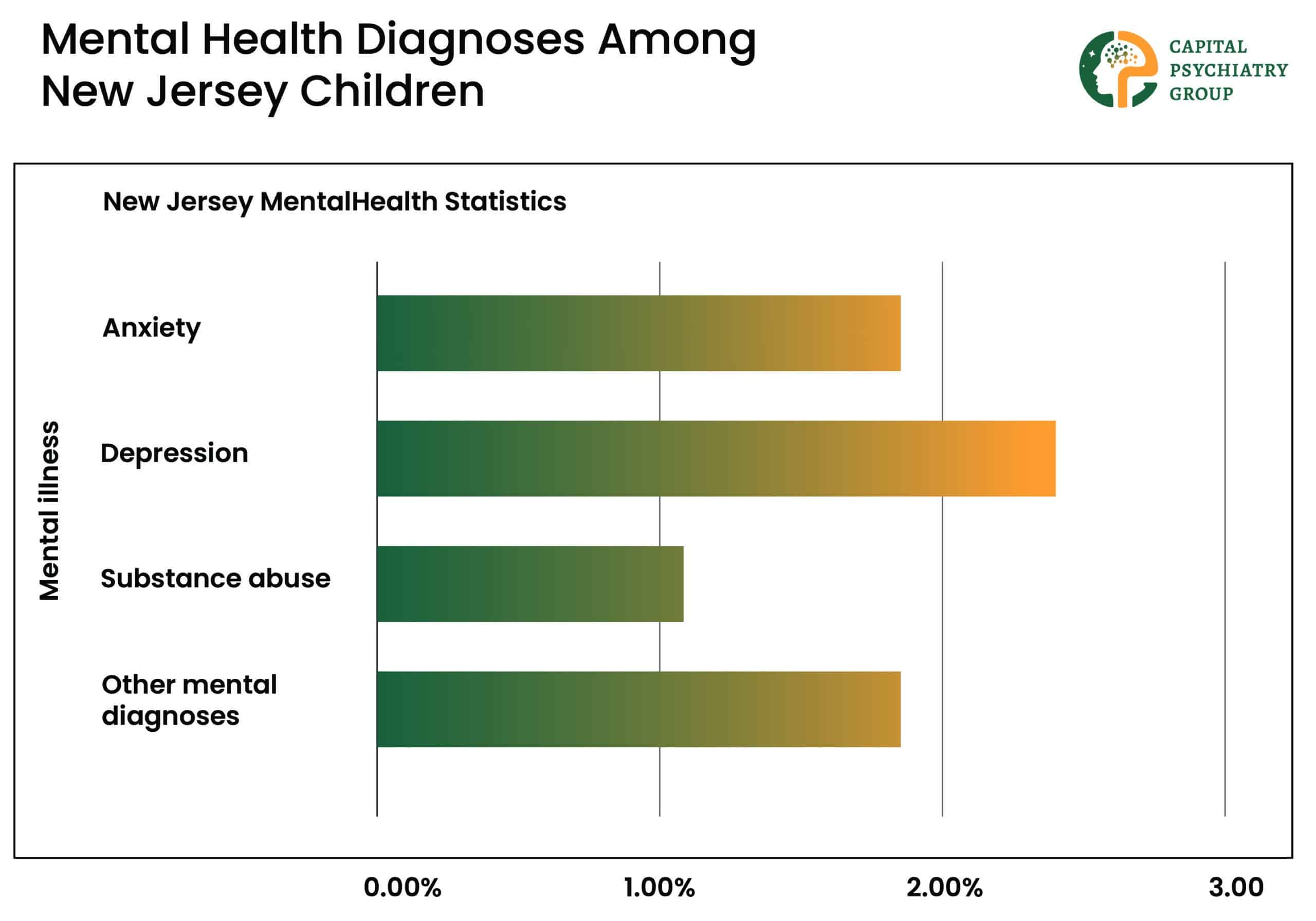
4. Telepsychiatry & On-Site Care
Although we offer onsite care, for many, time, distance, high costs, and stigma remain barriers to seeking mental health care. Telepsychiatry eliminates those obstacles by making expert treatment available from the privacy of home.
- The new standard of care A higher number of Anxiety patients rely on telehealth for anxiety treatment, and the majority report the quality of virtual sessions as equal to or better than or equivalent to in-person visits.
- Convenient for busy commuters and families Whether you’re in Bayonne, South Plainfield, Ewing, Delran, Hamilton, or Newark, battling long commutes, or in rural areas with limited providers, our on-site and telepsychiatry ensures access without added stress.
- Expert support, wherever you are Capital Psychiatry Group’s board-certified psychiatrists and psychiatric nurse practitioners specialize in anxiety disorders and are available in-person or online.
- Privacy and comfort first Virtual sessions reduce stigma by allowing patients to seek help discreetly, fostering a safe environment for open conversation and personalized treatment.
5. Lifestyle & Holistic Approaches
While not replacements for professional care, lifestyle changes can support recovery:
- Mindfulness and meditation: proven to reduce physiological markers of stress.
- Regular exercise: shown to decrease anxiety symptoms by up to 20%.
- Sleep hygiene and nutrition: crucial for emotional regulation.
Did You Know?
- Integrated care (therapy + medication + lifestyle changes) leads to the highest success rates.
- Patients who start treatment early recover faster and are less likely to relapse.
State-Specific Stats & Challenges in Anxiety Care
While New Jersey offers statewide resources like NJMentalHealthCares, many residents still report barriers to timely and affordable care. That’s where telepsychiatry plays a game-changing role.
- Unmet needs remain: From late 2020 to early 2022, about 7–11% of NJ adults said they needed mental health services but couldn’t access them.
- Schools under strain: About 70% of principals in elementary and middle schools reported not having enough mental health professionals for students.
- Telehealth adoption: Today, 72% of NJ residents receiving mental health care do so through telehealth. Most find it effective, with 70% rating the quality equal to or better than in-person visits.
Did You Know?
Nationally, nearly 80% of people who seek treatment for anxiety report significant improvement within months. Recovery is not only possible, but it’s also highly likely with the right combination of professional care and daily coping strategies.
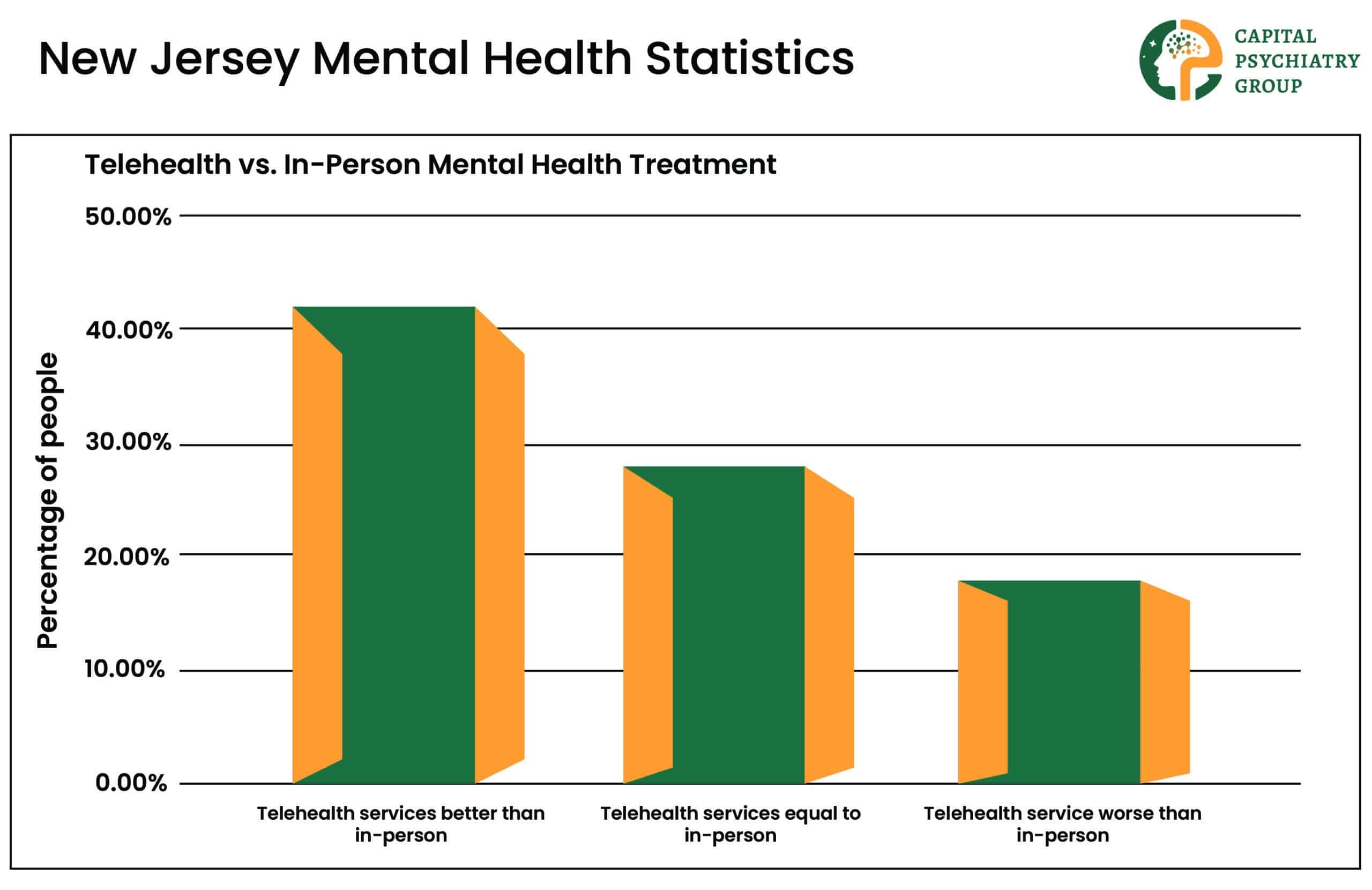
Why Choose Capital Psychiatry Group for Anxiety Care
Finding the right help for anxiety can feel overwhelming. Clinical psychiatrists and psychologists of CPG make the process simple, responsive, compassionate, and effective. Patients choose us because:
- Same-day/ Walk-in/Weekend Appointments: When anxiety feels urgent, waiting weeks is not an option. We offer appointments within 24 hours, so you can begin treatment quickly.
- All major insurances accepted
Cost should never be a barrier. We accept all insurance plans statewide and verify your benefits before your first visit. - Board-certified psychiatrists & Psychologists
Our team of licensed psychiatrists and clinical psychologists specializes in anxiety disorders, ensuring safe, effective, and evidence-based care. - Integrated care (medications + therapy)
While medication management is our focus, we also offer therapists to create holistic treatment plans when therapy is needed.
Final Note: Moving Forward with Hope and Care
Anxiety may be too common, but treatment (therapy, counseling, medication) is highly accessible with CPG. For people balancing long commutes, high-pressure jobs, and family responsibilities, getting help early can make all the difference. CPG has removed many barriers, no more waitlists, no stressful travel, just secure access to board-certified specialists from home or via onsite care.
Capital Psychiatry Group focuses exclusively on virtual/in-clinic care, making treatment convenient, private, and effective for people across the state. With the right support, recovery is just a call away. You don’t have to face anxiety alone; the path to relief can begin today.
Your Mental Health, Your Schedule: Telepsychiatry Made Simple
At Capital Psychiatry Group, telehealth isn’t just an option; it’s our specialty. By combining secure virtual care with accessible clinics, we make it easier for patients across New Jersey to connect with board-certified providers, skip long waitlists, and access high-quality treatment.
Frequently Asked Questions
Do you accept insurance for anxiety treatment?
Yes. We accept all major insurance plans in New Jersey. Our team will verify your benefits before your first appointment, so there are no surprises.
How soon can I be seen?
Many patients are seen the same day or within 24 hours through secure telepsychiatry/in-person care.
Can telepsychiatry treat panic attacks or social anxiety?
Yes. Panic disorder, social anxiety disorder, and other forms of anxiety can be effectively evaluated and treated through online psychiatric visits.
Do you treat teens with anxiety?
Yes. We provide evaluations and treatment for teens, adolescents, children, and adults. Care is personalized to each patient’s needs.
How do I know if I need medication vs. therapy?
This depends on your symptoms and medical history. Our providers will complete a full evaluation and recommend the most effective plan, which may include medication, therapy, or a combination of both.
